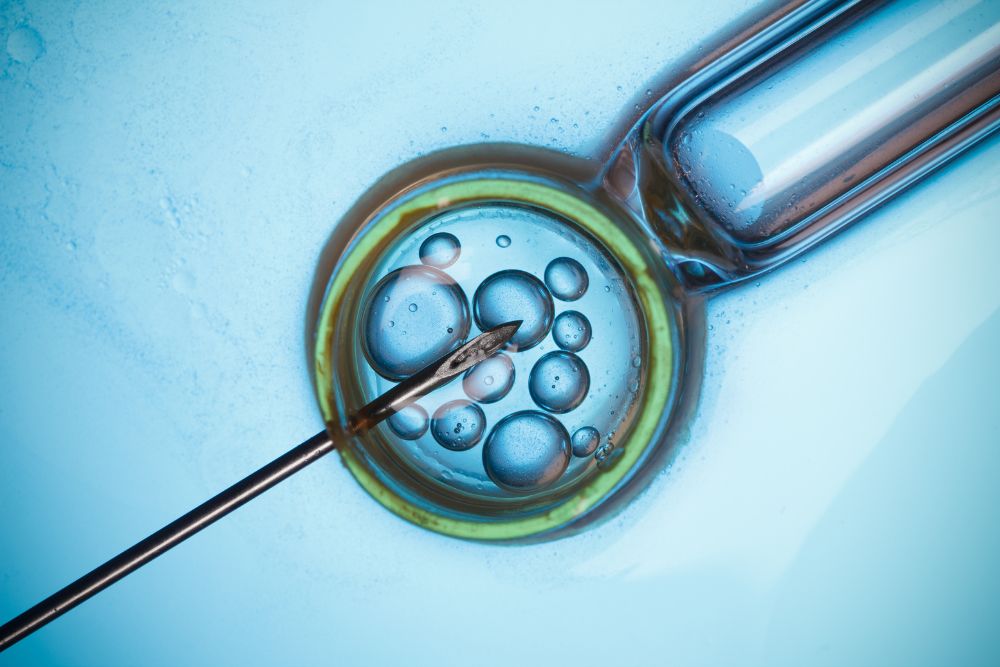Preimplantation Genetic Testing & IVF Success

With in vitro fertilization {IVF}, you ensure its success with proper diet and physical activity, avoiding poor habits, and receiving required healthcare. But certain factors, like genetic complications, are beyond your control. If you or your partner have a known genetic condition, preimplantation genetic testing {PGT}, performed in conjunction with IVF, can detect it. PGT ensures your embryo’s correct chromosome number, reducing the risk of passing on an inherited condition, which may lead to failed IVF cycles and miscarriages.
How Does Genetic Screening Benefit IVF?
With IVF, the most common fertility treatment, a woman's eggs and a man's sperm are fertilized outside of the body in a laboratory dish. After 2-5 days, the embryo’s transferred back to a woman’s uterus, in a process called embryo transfer. IVF has become safer, but genetic abnormalities can still occur in the mother-to-be or her partner, which can affect the baby.
An unsuccessful embryo transfer stage can lead to a failed pregnancy. Often, this is due to abnormal embryo genetics, such as for the chromosomes, the structures holding all of our genetic material. In a healthy embryo, the correct number of chromosomes is 46, with 23 coming from the egg and 23 from the sperm. Any gain or loss in this number, called aneuploidy, can damage the embryo’s growth, development, and function of the body's systems.
When Should PGT Be Performed?
If you, your partner, or someone in your family have a known genetic condition, and you’re undergoing IVF, PGT can reduce the risk of passing it on to an embryo. However, PGT cannot change or correct an embryo’s chromosomal problems.
Generally, PGT is recommended for women over 37 years old, due to the impact of aging. It may also benefit couples with an inherited genetic disease, or if you have a history of recurrent miscarriages due to chromosomal abnormalities. As there are multiple PGT types, your fertility specialist can help determine the ideal testing method. You must undergo IVF to order embryos for PGT. It can be used for:
- A female patient is a carrier for an X-linked condition, a genetic condition associated with the X (male) chromosome, such as hemophilia A.
- A screening called PGT-A identifies chromosomal anomalies or aneuploidy, like Down Syndrome, and gender selection for family balancing. PGT-A is recommended for recurrent miscarriage and advanced maternal age.
- PGT-M is used when you and your partner are carriers of a known genetic disorder, such as Tay Sachs or cystic fibrosis. PGT-M identifies healthy embryos free of certain genetic mutations.
- PGT-SR is used when you or your partner carry a balanced chromosomal rearrangement, in which an embryo has the correct number of chromosomes, but structural abnormalities exist, like deletions or rearrangements. Carriers usually don’t experience any apparent abnormalities, but there may be increased risks of infertility, recurrent miscarriages, and children with genetic abnormalities.
- PGT can be used when a family member needs a bone marrow donor. With IVF, PGT helps ensure that a child who can provide matching stem cells will be delivered.
Are There Any PGT Risks?
Before PGT, you and your fertility specialist will discuss potential risks and limitations, including those for the biopsy and the freeze/thaw process. The PGT results may reveal that you have no embryos recommended for transfer. PGT also does not identify all genetic risks or replace screening options recommended during pregnancy. And once pregnancy begins, it’s recommended that you have additional prenatal genetic testing.
Schedule a Preimplantation Genetic Testing Consultation in the Washington Metro Area
With IVF, despite its success rate, genetic abnormalities may affect the embryo. However, PGT enables chromosome issues to be detected, helping to ensure a healthy birth. If considering PGT or other genetic screening, or for questions about fertility, please contact us for an appointment.